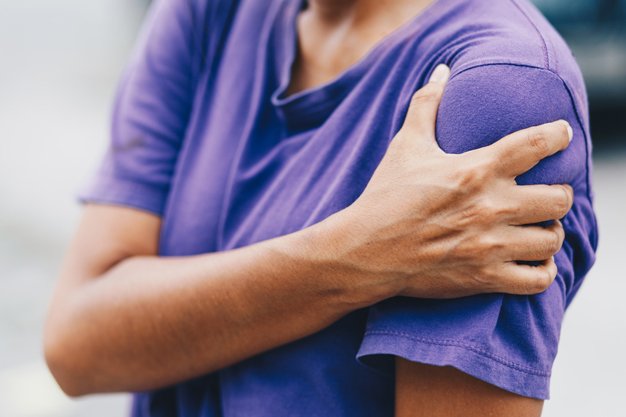
Rotator cuff is a group muscles which surrounds the shoulder joint. It stabilizes shoulder joint and moves arm in various directions. Rotator cuff injuries are common. Frequently occurs in age > 50 as tendons degenerate due to wear and tear over the time.
Often it develops with fall or trauma, but sometimes it can occur with trivial trauma like lifting or throwing.
Rotator cuff weaken your shoulder and you can have pain and difficulty in many day to day activities.
Main symptoms include:
- Pain in shoulder and arm
- Difficulty in lifting
- Difficulty in combing hairs or reaching to the back
- Disturbed sleep due to pain
- Weakness while using arm
Cuff tear can be classified in different ways:
- Acute or chronic
- Partial thickness or full thickness
- On size and retraction
- Extent of muscles involved
- MRI – it is an investigation of choice which shows extent of tear, muscle condition and retraction so that appropriate treatment can be planned.
- Ultrasound – Cuff tear can be diagnosed with ultrasound.
- X ray – Cuff is not seen in x ray but Proximal migration of humeral head or acromial spur can be seen
- Rest
- Activity modification
- Medicines – takes care of pain
- Physical therapy – specific exercises helps in restoring function of shoulder
- Surgical repair – Torn full thickness rotator cuff needs to be repaired surgically. Surgery can be done as open repair or as arthroscopic repair.
Is rotator cuff repair a major surgery?
Yes, it is a major surgery.
How long does it take to recover from rotator cuff repair?
It can take 4-6 months for recovery it depends on extent of tear, age and other factors.
Can rotator cuff tear heal on its own?
Full thickness tear unlikely heals on own.
What happens if torn cuff is left untreated?
If untreated, rotator cuff tear can restrict function and movements. Tear can progresses and increase in size.
Do I need physiotherapy after surgery?
Yes, Physiotherapy is important part in recovery. Specific exercises are recommended for better and timely recovery of shoulder function.
